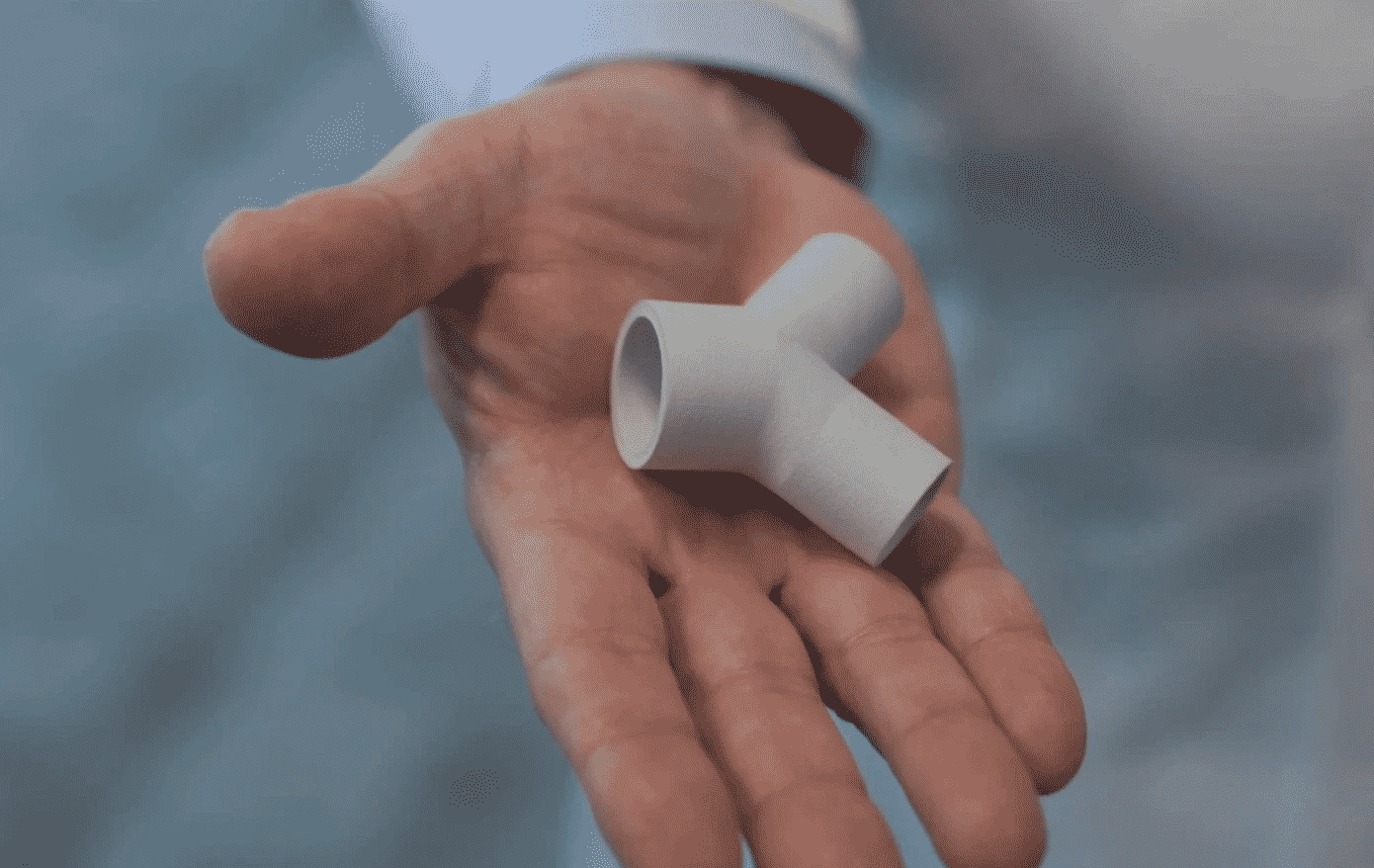The imminent shortage of ventilators for U.S. hospitals is most probably already a crisis, but may become even more scarce because the amount grows of individuals with COVID-19 who are afflicted by acute symptoms and need hospitalization.
That is the reason why a kind of hardware is just approved by the FDA for emergency usage — and free through source code along with 3D printing for hospitals — may be a key in helping minimize the front-line response attempts.
The Prisma Health VESper is a three-way connector that expands a single ventilator’s usage to treat around four patients at the same time. The unit is designed for use tubing and which comply with ISO ventilator hardware, and permits the use of equipment that was filtering to block some transmission of bacteria and viruses.
VESper functions as one connected to the intake of this ventilator, and another attached to the return. They can be stacked to permit for therapy up to four patients at once — provided that the patients are under the same clinical therapy concerning oxygenation, including the atmosphere pressure in addition to the oxygen mixture and other aspects.
This was invented by Dr. Sarah Farris, an emergency room physician, who shared the idea with her husband Ryan Farris, a software engineer that developed the first prototype design for 3D printing.
Prisma Health is creating the VESper available upon request through its printing specifications, but it needs to be noticed that the emergency use authority under the FDA approved its use implies that this is simply meant efficiently as a last-resort step — for associations in which ventilators approved under FDA rules have been in vacancy, and no additional distribution or other is offered so as to carry on the life span of patients.
Devices stripped under FDA Emergency Use Authorization (EUA) such as this one are wholly known to function as prototypes, and also the terms of the usage include a responsibility to report the outcomes of how they function in practice. This information contributes to additional development and refinement, and to the investigation of the efficacy of the design to be able to maximize efficacy and their safety.
Along with supplying the programs for 3D printing, Prisma Health has got contributions to assist print components for health care facilities which don’t have access to their 3D printers.
The initial batch of these is financed by a contribution in the Sargent Foundation of South Carolina, but Prisma Health is currently seeking contributions to fund research in addition to manufacturing.

